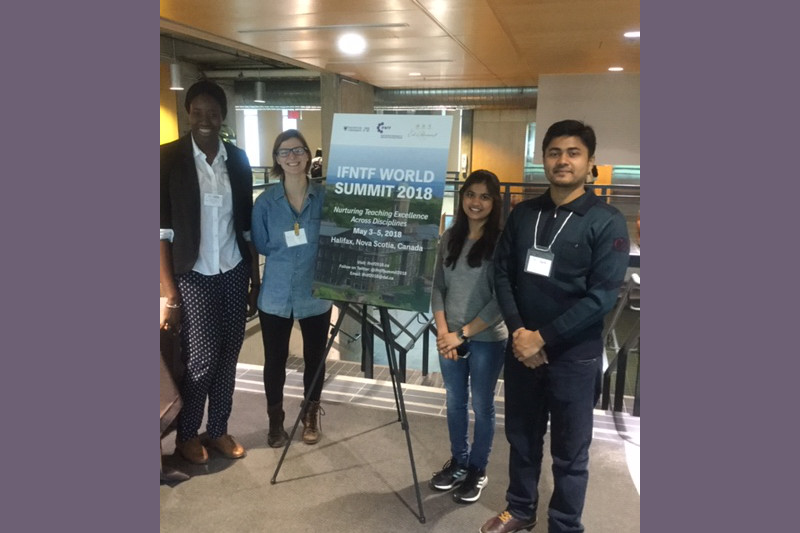IFNTF Committee
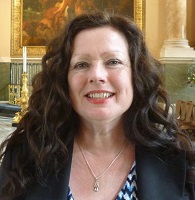
Professor Martina A. Doolan, Ed.D President, UK

Professor Srini Sampalli, Ph.D Vice President, Canada
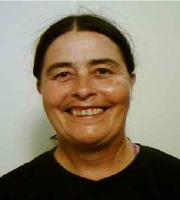
Dr Trudi Cooper Vice President, Australia

Professor James Intriligator, Ph.D, FRSA Vice President, USA

Professor Stephen Rutherford Ph.D Ed.D Treasurer, UK

Professor Laura Ritchie Secretary, UK
President, UK
National Teaching Fellow, Principal Fellow (PFHEA), Professor of Learning and Teaching, University of Hertfordshire (UK)
Dr Martina A. Doolan graduated from the University of Hertfordshire (UH) in 1996 having studied a BTEC HND in Computer Studies and a BSc in Computer Science. She then joined the University as an academic member of staff and in 5 years progressed from Visiting to Part-time Lecturer and Senior to Principal Lecturer in Computer Science. Martina completed the UH Postgraduate Certificate and Postgraduate Diploma, is the first at UH to achieve the award of MA in Teaching and Learning and one of the first five recipients of the Vice Chancellor’s award for Excellence in Teaching and Learning. Her Doctorate in 2011 is in Education and based upon innovative uses of social networking technologies in teaching practice.
Martina is passionate about the Scholarship of Teaching and Learning in other words enhancing learning and teaching in Higher Education. To this end her current pedagogic research includes: embracing socially constructivist approaches to learning and teaching. Martina researches the development and integration of blending technology and pedagogy into effective student collaborative/community learning environments; understanding the student experience and the effective use of educational technology in developing collaborative/community learning environments. Her expertise as a Computer Scientist is in Human Computer Interaction and includes: designing for usability and sociability, social interaction and technology mediated communication and collaboration.
Martina leads and works on funded projects i.e. Martina was one of 12 academics chosen from across the University of Hertfordshire to work on a £4.5 million five-year project funded by the Higher Education Funding Council in England (HEFCE) - An institution wide Centre for Excellence in Learning and Teaching (CETL) was established with a focus on Blended Learning, £200,000 two-year Joint Information Systems Committee (JISC) project. Martina’s national and International presence has been gained through various steering groups, committees and advisory boards, as a journal and book editor, a reviewer, conference organiser and chair, running symposia and workshops. Martina has published widely: conference papers, posters and other publications i.e. conference abstracts, journal articles and book chapters. Martina is a prolific speaker at conferences and other events and has presented many papers, keynotes and workshops nationally and internationally. Martina regularly accepts invitations to visit other universities both nationally and internationally to share, learn and collaborate.
In addition to her expertise in Pedagogy and as a Computer Scientist, Martina is active in Equality, Diversity and Inclusivity with 8 years’ experience of writing successful Athena SWAN bids. As chair and Athena SWAN champion Martina plays a key role in influencing and shaping generations of women as learners, educators, workers, role models and leaders in technology. If you would like to learn and share contact Martina at : http://www.madoolan.com
Vice President, Canada
Professor and 3M National Teaching Fellow, Dalhousie University, Canada.
Dr Srinivas (Srini) Sampalli is a Professor and 3M National Teaching Fellow in the Faculty of Computer Science, Dalhousie University, Halifax, Nova Scotia, and brings with him nearly 20 years of teaching and research experience. Deeply passionate about teaching and sharing knowledge, Dr.Sampalli's primary joy is in inspiring and motivating students with his enthusiastic and energetic teaching. Within the first five years of his academic career, Srini received the Dalhousie Faculty of Science Teaching Excellence award, the Dalhousie Alumni Association Teaching award, and the Association of Atlantic Universities' Distinguished Teacher Award. In 2000, the “Srini Teaching Award”, a teaching award in his name, was instituted by the students within the Faculty of Computer Science, and in 2005, he received the 3M National Teaching Fellowship, Canada's most prestigious teaching acknowledgement. Dr.Sampalli is also very active in research. His research interests are in the areas of cyber-security and applications of emerging wireless technologies. He currently supervises 6 Ph.D. and 14 Masters students in his MYTech (EMergingWIreless Technologies lab), and has supervised over 100 graduate students in his career. He has successfully led industry-driven research and development projects on protocol vulnerabilities, security best practices, design of intrusion detection and prevention systems, and applications of wireless technologies in healthcare. His projects have been funded by Canadian federal government grants and research organizations. Dr.Sampalli is a prolific contributor to teaching workshops, panel discussions, and faculty orientation sessions, and to faculty and student mentoring programmes.
Vice President, Australia
Dr Trudi Cooper is an Australian Learning and Teaching Fellow and Associate Professor in Youth Work at Edith Cowan University.
Previously she led a national team funded by the O/ce for Learning and Teaching to renew the youth work curriculum for Australian higher education (2010), and received a Carrick CAAUT Citation for Outstanding Contribution to Learning and Teaching (2006). She holds a PhD from Edith Cowan University for research into quality management of teaching in Australian Higher Education, a Master’s degree by research in Educational Research from Lancaster University, in the UK, a UK teaching qualification (Leeds University), and is recognised as a qualified Youth and Community worker in England and Wales (CETQYCW). Trudi is a research member of the Centre for People Place and Planet at Edith Cowan University, which is an interdisciplinary research group concerned with systemic responses to the climate crisis.
Vice President, USA
Professor of the Practice Dept of Mechanical Engineering; Director, Human Factors Engineering Program, Tufts University (Boston, USA)
James Intriligator is the director of the Human Factors Engineering Program at Tufts University (Boston, USA). He is a Professor of the Practice in the Department of Mechanical Engineering (School of Engineering). An interest in vision and the brain originally brought James to Harvard where he earned his Ph.D. in cognitive neuroscience (1997). After a postdoc in neurology at Beth Israel Deaconess Medical Center, he left academia for five years and worked in venture capital and high-tech consulting firms as an entrepreneur, offerings designer, and innovation catalyst. In 2003, he merged his business experience with his scientific expertise and went to Bangor University (Wales, UK) as a pioneer in the field of consumer psychology. In his 13 years at Bangor, Intriligator created Europe's leading consumer psychology master's programs and co-developed several multidisciplinary design programs (Enterprise by Design and Social Enterprise Accelerator). He was named a UK National Teaching Fellow in 2014. He joined Tufts University in 2016 to lead the university’s renowned Human Factors Engineering program into its next phase of innovation and growth. Intriligator is the author of over 50 publications in fields as diverse as neuroscience, neurology, consumer psychology, physics, and literary criticism. Intriligator’s latest research is primarily in the domain of developing next-generation human-machine systems. This broad area covers everything from assistive and social robots, to baggage screeners, to VR systems, to military and medical devices. In addition to his work within the university, he also works with global organizations as well as local social-enterprise and social-justice groups. Since arriving at Tufts Intriligator has been nominated for a Tufts Distinction Award, shortlisted for Professor of the Year, and won a university-wide Teaching with Technology award.
Treasurer, UK
Head of Education Division, School of Biosciences, Cardiff University (UK)
Prof. Steve Rutherford is Professor of Bioscience Education, and Head of the Education Division, in the School of Biosciences, Cardiff University. He was formerly Director of Undergraduate Education within the School. Steve is also the Academic Lead for learning and teaching professional development courses at Cardiff, in the Centre for Education Support and Innovation (CESI). During 2020, Steve was a working group lead within the University’s ‘Digital Education Project’, to support the move to online teaching due to Covid-19, leading the ‘Staff Training and Development’ strategy. Steve was awarded a UK National Teaching Fellowship in 2016, and a Personal Chair in 2018. Steve is a HEA Senior Fellow and a Fellow of the Royal Society of Biology. In 2015, he was awarded the ‘Excellence in Teaching’ award for Cardiff University, and was shortlisted for Most Supportive Teacher and Enhancing student Life Award in the student-nominated Cardiff University ‘Enriching Student Life’ Awards in 2016. Steve has a PhD in Cell Biology, as well as a Masters in Education (MA)Ed)) and a Doctorate in Education (EdD). His teaching focuses on cell biology and molecular genetics, as well as active and digital learning, and student engagement, for staff professional development. Steve’s educational research is focused primarily around the development of self-regulated learning in students during the transition to, and through, university. He also has research interests in active and collaborative learning, the development of peer-based learning communities and ‘Personal Learning Networks’, and student engagement in assessment. Steve is the lead on ‘EAT-Erasmus’, an Erasmus+/European Union-funded collaborative education development project (with 5 other European institutions) on self-regulation and student partnership in assessment.
https://www.cardiff.ac.uk/people/view/81269-rutherford-stephen
Secretary, UK
Professor Learning and Teaching, Deputy Director of ESTA Education, University of Chichester (UK)
Dr Laura Ritchie is Professor of Learning and Teaching at the University of Chichester, UK. She is a chartered phycologist who is vibrant in her teaching, research, music-making, and in life; she embodies a ‘yes’ attitude. Laura’s teaching is heavily influenced by her research into people’s self-beliefs and cognitive processes as they learn and perform/carry out tasks. Her research focuses on self-efficacy beliefs (a person’s self-beliefs in their capabilities to do a particular task) and metacognitive processes. Her recent book Yes I Can: Learn to use the Power of Self-efficacy is a practical and personal book about self-efficacy, strategic thinking, and recognising possibility in order to adopt the yes of self-efficacy into daily life. Earlier books include California Dreaming (2017, co-written with students) and Fostering self-efficacy in Higher Education Students (2015).
http://www.lauraritchie.com/
IFNTF Founders

Professor Elizabeth A. Wells, Ph.D Founding Co-President

Associate Professor Kirsten Hardie, Ph.D Founding Co-President
Founding Co-President
Dean-Elect, and Pickard-Bell Professor in Music, Mount Allison University, Canada. Former Chair, Council of 3M National Teaching Fellows
Elizabeth Wells earned her Bachelor of Music degree from the University of Toronto with a concentration in History and Literature of Music. She then pursued a career in public broadcasting, working as a music programmer and producer of a classical music programs for CJRT-FM in Toronto. In 1993, she entered the graduate program in musicology at the Eastman School of Music. Her dissertation, entitled West Side Story(s): Perspectives on a Great American Musical, has been supported by the three dissertation fellowships, including the AMS-50 Dissertation Fellowship awarded annually to the most promising doctoral research in musicology in North America. In 2011 a book version was published by Scarecrow Press.
Wells has read papers on musicology and music history pedagogy at national and international conferences, including meetings of Feminist Theory and Music, the American Musicological Society and the International Musicological Society. In addition, she has given guest lectures and has been an invited speaker on musical theatre, most notably at Harvard University. She has twice won the “Best Student Paper” from the New York State/St. Lawrence Chapter of the AMS. Her work has been published in Cambridge Opera Journal and the Journal of the American Musicological Society.
Before coming to Mount Allison, she taught music history at Mansfield University in Pennsylvania, the State University of New York at Geneseo, and the Eastman School of Music. In 2008 she won the Tucker Teaching Award, Mount Allison's highest recognition of teaching excellence, and the Association of Atlantic Universities' Distinguished Teacher Award. She was named a 3M National Teaching Fellow in 2010. She has served as Chair of the Council of 3M National Teaching Fellows.
Her research interests include music history pedagogy, British musical theatre of the 1950s, and American musical theatre at mid-century. She has developed innovative courses including one on the Beatles and a course supported by the Vice-President's Curricular Innovation fund entitled “Music and Difference,” which addresses music's role in mediating and expressing difference.
Founding Co-President
Associate Professor, Arts University Bournemouth, UK. Former Chair of the Committee of the Association of National Teaching Fellows.
Kirsten was awarded a UK National Teaching Fellowship (NTF) in 2004. She studied Design History (BA (Hons)) and Graphic Design (MA) and combined both areas of expertise in her PhD work. She has over twenty nine years teaching experience and is passionate about creative and innovative pedagogy and excellence in learning and teaching. Her pedagogic research themes include; problem-based learning; object-based learning; teaching excellence and reward schemes and HE art and design pedagogy. Kirsten's On Trial pedagogic work - experiential, student-centred, problem-based role play learning and teaching - is inspired by the mock trial of legal education/practice and the courtroom dramas in popular media and she works with colleagues cross-discipline regarding this dynamic learning experience.
Kirsten is Executive member of the Group for Learning in Art & Design; Secretary for the Graphic Design Educators Network; and elected member of the Executive Council of the Ephemera Society. She has served as Executive Committee member Design History Society (2004-2008) and she was Chair of the Art and Design Reference Group, Higher Education Academy Art, Design and Media Subject Centre (2010) and Vice Chair in 2009. Kirsten has worked as Co-Chair of the International Society of Scholarship of Learning and Teaching Multinational Teaching Fellows Group for a number of years. In 2004, in recognition of her learning and teaching work, Kirsten was invited to HM the Queen's reception at Buckingham Palace to celebrate the role of design in the life of the nation.
Kirsten was member of the collaborative 'Creative Interventions: valuing and assessing creativity in student work-related learning in the public and not-for-profit sectors' Higher Education Academy NTF Group Project (2008-2010).
Kirsten is a prolific conference speaker and has presented many papers, keynotes and workshops internationally. She has authored a range of articles and papers, is an experienced conference and event organiser and has curated numerous exhibitions. Her activities include a significant number of collaborative and advisory roles across HE internationally including External Examinerships and peer reviewer for numerous organisations and journals. She is a UK Higher Education Academy (HEA) Academic Associate and Fellow of the HEA. Kirsten is an associate editor for the Higher Education Pedagogies Journal.
Kirsten's research interests also include plastics; food packaging; and flock. She is an avid collector and was responsible for the creation of her home institution's original design museum.
The IFNTF Logo
 The IFNTF thanks Jake Thompson for designing the IFNTF logo. Jake was a final year BA(Hons) Graphic Design student at the University of Salford, UK.
The IFNTF thanks Jake Thompson for designing the IFNTF logo. Jake was a final year BA(Hons) Graphic Design student at the University of Salford, UK.
The IFNTF also thanks Jake's Graphic Design colleagues who also created some great designs as the proposed logo. Their creativity and professionalism is much appreciated.
Students working with the IFNTF
We are delighted and proud to work with students across the globe in the organisation of the IFNTF and its activities. The IFNTF are very grateful for student contributions past and present.
We thank the students at Dalhousie University, Halifax, Nova Scotia, Canada for their help and support in the organisation of the IFNTF World Summit in 2019 – and particularly those students that provided great presentations at the event.
The Committee also thanks the following students who were proactive in the establishment of the IFNTF: Nicholas Godsoe, Elizabeth M. Hernandez Lopez, Abdulsalam Almanthari and Piper Riley Thompson
IFNTF Students
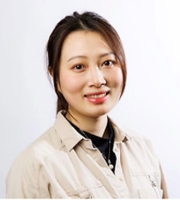
Daisy Bao Newsletter editor, UK PhD candidate, Moray House School of Education and Sport, The University of Edinburgh

Robert-Stefan Birlan Web Developer, UK BSc student in Computer Science with Artificial Intelligence, University of Hertfordshire

Jake Thompson Jake Thompson is a graduate of the University of Salford, UK
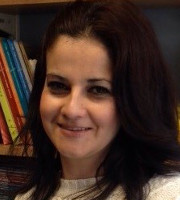
Elizabeth M. Hernandez Lopez
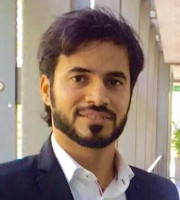
Abdulsalam Almanthari
Newsletter editor, UK
PhD candidate, Moray House School of Education and Sport, The University of Edinburgh
Daisy is a PhD researcher in Higher Education at the University of Edinburgh. She has been working on supporting student HE experiences for over 6 years with strong interests and research achievements in student-staff partnerships, student engagement, educational technologies (5G network), teacher education, and teacher professional education.
Prior to being a PhD, Daisy was an officer and a policy maker in the Municipal Education Department where she supported the higher education affairs across 44 universities, as well as developed the new policy for vocational education with a team. Daisy was also a researcher in higher education at the Municipal Teacher Professional Education Centre, and has been a committee member in the municipal supervisor training scheme.
Daisy has experience in quality assurance in HEIs, discipline design, HE staff professional development, student engagement, and EDI strategy in HE (e.g. curricula, extra-curricular activities, and student-staff interactions).
More about Daisy can be found HERE.
Web Developer, UK
BSc student in Computer Science with Artificial Intelligence, University of Hertfordshire
Robert is a committed BSc student in Computer Science with a focus on Artificial Intelligence at the University of Hertfordshire. With a diverse professional background, he has developed a robust skill set in data management, logistics, and technical troubleshooting, driven by a passion for advancing data system technologies.
Currently, Robert works as a freelance front-end developer, creating customized, user-friendly websites, while also balancing roles as a student researcher and sales supervisor. He has completed his law degree at the University of Craiova, Romania, and gained valuable experience as a paralegal, where he honed his analytical and organizational skills.
Robert’s skills span web development, proficiency in various programming languages (Python, HTML,CSS, JavaScript), and expertise in records management. Bilingual in English and Romanian, he excels in both team and independent settings.
More about Robert can be found HERE.


